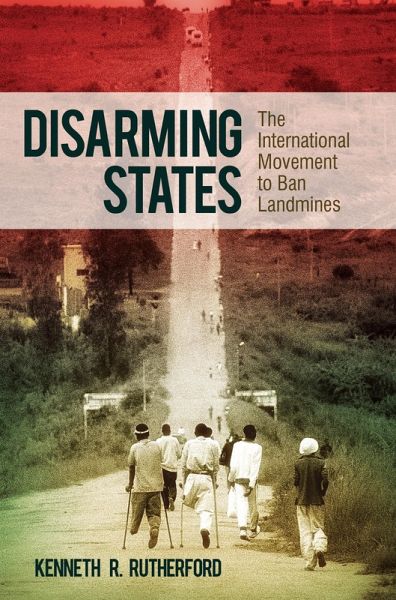
Disarming States (eBook, PDF)
The International Movement to Ban Landmines
Versandkostenfrei!
Sofort per Download lieferbar
37,95 €
inkl. MwSt.
Weitere Ausgaben:

PAYBACK Punkte
19 °P sammeln!
This book provides a detailed history of the global movement to ban anti-personnel landmines (APL), marking the first case of a successful worldwide civil society movement to end the use of an entire category of weapons. In March 1995, Belgium became the first state to pass a domestic anti-personnel landmine ban. In December 1997, 122 states joined Belgium in signing the comprehensive Mine Ban Treaty, also known as the Ottawa Treaty. The movement to ban landmines became a turning point in global politics that continues to influence policy and strategy decisions regarding weapon use today. Disa...
This book provides a detailed history of the global movement to ban anti-personnel landmines (APL), marking the first case of a successful worldwide civil society movement to end the use of an entire category of weapons. In March 1995, Belgium became the first state to pass a domestic anti-personnel landmine ban. In December 1997, 122 states joined Belgium in signing the comprehensive Mine Ban Treaty, also known as the Ottawa Treaty. The movement to ban landmines became a turning point in global politics that continues to influence policy and strategy decisions regarding weapon use today. Disarming States: The International Movement to Ban Landmines describes how non-government organizations (NGOs) brought the landmine issue to international attention by forming the International Campaign to Ban Landmines (ICBL). The author presents new information gleaned from interviews and intensive research conducted around the world. The critical role of mid-size states-such as Austria, Canada, and Switzerland-recruited to back the movement's goals is examined. The book concludes by examining how NGOs affect the international political agenda, especially in seeking legal prohibitions on weapons and changes in states' behaviors.



